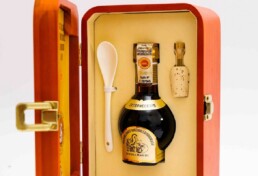Balsamic Vinegar of Modena IGP or Traditional DOP? Tips for cooking
When it comes to choosing between Balsamic Vinegar of Modena PGI (Protected Geographical Indication) and Traditional Balsamic Vinegar of Modena PDO (Protected Designation of Origin), the options can seem abundant and complex. In this guide we are going to see what the main differences between the two are and offer some tips for use in the kitchen.
Balsamic Vinegar of Modena IGP: a versatile ally
Balsamic Vinegar of Modena IGP is a versatile choice as well as ideal for everyday use in the kitchen. Made primarily from cooked grape must and wine vinegar, and aged in wooden barrels, the PGI is known for its balance of acidity and sweetness. Its production follows certain procedures that ensure remarkable and appreciable quality from a taste point of view and beyond.
How to use it in cooking
Being versatile and suitable for everyday use, you can use this seasoning to elevate the flavors of many dishes. Below is a list from which to take inspiration:
- Mixed salads and grilled vegetables - Balsamic Vinegar of Modena IGP is a perfect accompaniment to mixed salads and grilled vegetables. Its balanced flavor adds a delicious sweet and sour note to any dish.
- Cheeses -It proves perfect on aged cheeses such as parmesan or pecorino. It allows you to create more colorful cutting boards and offer guests a sophisticated and special combination of flavors.
- Marinades for meat - IGP makes an excellent base for meat marinades. Its mild acidity and complementary sweetness impart flavor without overpowering the taste of the meat.
- Primi piatti - Particularly in risotti, IGP balsamic presents itself as an outstanding ingredient.
Traditional Balsamic Vinegar of Modena DOP: elegance and tradition
The Traditional Balsamic Vinegar of Modena DOP is also the result of artisanal and traditional production. Sourced from cooked must and aged in fine wooden barrels (for many years longer than the other type of balsamic), this vinegar is characterized by greater density and a more full-bodied and complex flavor than Balsamic Vinegar of Modena IGP. Its production is strictly regulated, guaranteeing consumers a high-quality product.
How to use it in cooking
Given its characteristics, Traditional DOP proves perfect for more refined dishes and even gourmet dishes. It is excellent on grilled meat and fish and even on carpaccio. Its aromatic complexity adds flavor to the dish and offers a unique organoleptic experience. This balsamic is also suitable for pairing with fruit (especially on strawberries) and with ice cream. It is also ideal with fine cheeses such as gorgonzola and taleggio cheese.

Some practical tips for using Aceto Balsamico di Modena IGP and Aceto Balsamico Tradizionale di Modena DOP
Whatever the dish to be enhanced, it is important to consider that both vinegars have intense flavors. So it is advisable to use them in moderation: you can start with a few drops and add more gradually according to your tastes. Doing so will not risk overpowering the other flavors, but will only enhance them. It should also be remembered that everyone has their own culinary preferences. Therefore, it is a good idea to experiment with different combinations until you find the ideal pairings for your palate.
Finally, do not forget to invest in high-quality vinegars made by producers who follow traditional techniques passed down from generation to generation. The quality of the ingredients will be reflected in the end result, and thus in the taste and texture of the dish. You can find Traditional Balsamic Vinegar of Modena IGP and Traditional Balsamic Vinegar of Modena DOP directly in our Bottega, located a short distance from the center of Modena. We look forward to welcoming you
Balsamic vinegar production: discovering the vinegar cellar
Balsamic vinegar is one of Italy's gastronomic treasures and represents a culinary tradition rich in history and passion. It is produced in special places called "acetaie," where the vinegar is carefully produced and aged. In this article we will explore the art behind the production of balsamic vinegar and we will find out what makes vinegar factories so unique.
The Origin of Modena's Black Gold
Traditional Balsamic Vinegar of Modena DOP and Balsamic Vinegar of Modena IGP are products originating in Emilia-Romagna. Their story has its roots In antiquity (OF DOP ONLY) and has become a distinctive tradition especially in the Modena area. Also called Black Gold, to highlight its prestige and a characteristic of its appearance (it has a very dark color), this condiment is now appreciated in every part of Italy and also in many other places in the rest of the world.
The production of balsamic vinegar is regulated by various procedures and directions, and characterized by methods handed down from generation to generation.
The main ingredient is grape must, known as cooked must, which is aged in wooden barrels.
The Vinegar Works: a place that encompasses passion and tradition, fundamental to the production of balsamic vinegar
Acetaie are the places where Traditional Balsamic Vinegar of Modena DOP is produced and refined and/or aged. These facilities are often run by families who have guarded the tradition of this precious condiment for generations. A visit to a vinegar factory is a unique experience that offers a window into the history and culture associated with this precious condiment.
Inside a vinegar cellar it is possible to admire the various stages of production of Traditional Balsamic Vinegar of Modena DOP.
This long and complex process begins with the grape harvest which must be ripe, of high quality and local varieties (from the Modena area) such as Lambrusco o Ancellotta. Next, the grapes are crushed and the resulting must is simmered for hours. This process reduces the must to a very thick syrup known precisely as cooked must. The latter is fermented in wooden barrels... This is the starting point for the "birth" of balsamic vinegar.
The immature vinegar is slowly transferred to a series of smaller and smaller wooden barrels. Each barrel can be made from a different wood, such as cherry, oak, mulberry or chestnut, and imparts unique aromas and flavors to the dressing. Traditional Balsamic Vinegar of Modena DOP must age for at least 12 years. During this time, the vinegar thickens and develops its characteristic sweet-and-sour flavor.

Tasting in the vinegar cellar
Inside a aceteria you can not only see how the production of balsamic vinegar takes place: you can also taste this delicious condiment. You will be able to taste the difference between Balsamic Vinegar of Modena IGP, with its sweet and sour taste, and between Traditional Balsamic Vinegar of Modena DOP
Affinato ( at least 12 years) and Extra old
( at least 25 years). Boasts a rich, complex and velvety flavor.
Balsamic vinegar production in our vinegar factory
Se desiderate visitare un’acetaia, potete venire nella nostra. All’interno dell’Acetaia Marchi you will see with your own eyes how the production of balsamic vinegar.
You will discover that this product is more than just a condiment: it is a culinary tradition passed down from generation to generation, as well as a gastronomic treasure to be enjoyed and appreciated.
What is the difference between Traditional Balsamic Vinegar of Modena PDO and Balsamic Vinegar of Modena PGI?
Knowing the difference between Traditional Balsamic Vinegar of Modena PDO and Balsamic Vinegar of Modena PGI is important. In fact, this is the only way to make the right choice for your palate and the dishes you want to prepare. These condiments differ in organoleptic properties, but the differences do not end there.
Let's start with the acronyms...
.
What do the acronyms D.O.P. and I.G.P. mean? Having the answer to this question is certainly the first step towards understanding what the difference is between Traditional Balsamic Vinegar of Modena PDO and Balsamic Vinegar of Modena PGI. The former is the abbreviation for Protected Designation of Origin, while PGI stands for Protected Geographical Indication. These two acronyms are awards granted to food products with unique characteristics linked to geographical origin and beyond.
More specifically, we can say that the P.D.O. label indicates that the product has been prepared in a specific region and following precise production standards. This label is issued exclusively to foodstuffs that have been entirely produced within a specific geographical area according to the specifications. PGI labelling ensures that the product has a precise geographical origin and that at least one of the production steps was carried out in the specified geographical area.
The characteristics that make the difference between Traditional Balsamic Vinegar of Modena PDO and Balsamic Vinegar of Modena PGI
.
In addition to the recognition marks we have just mentioned, there are certain characteristics that make Traditional Balsamic Vinegar different from non-traditional vinegar. Traditional balsamic is a condiment made exclusively from cooked grape must, following a very slow process. It is a superior quality foodstuff that is only made in certain specific areas of Emilia-Romagna and the provinces of Modena and Reggio Emilia. It has a more or less intense flavour, depending on ageing, a dark colour and a full-bodied consistency.
Balsamic Vinegar of Modena PGI is a condiment produced following a faster process and with different ingredients than the traditional one. It is in fact made from cooked grape must, wine vinegar and a mixture of aromas and flavours. This is a decisive and substantial difference between Traditional Balsamic Vinegar of Modena PDO and Balsamic Vinegar of Modena PGI. The flavour changes, becoming less intense, although it is still delicious, and the consistency is less full-bodied than traditional.
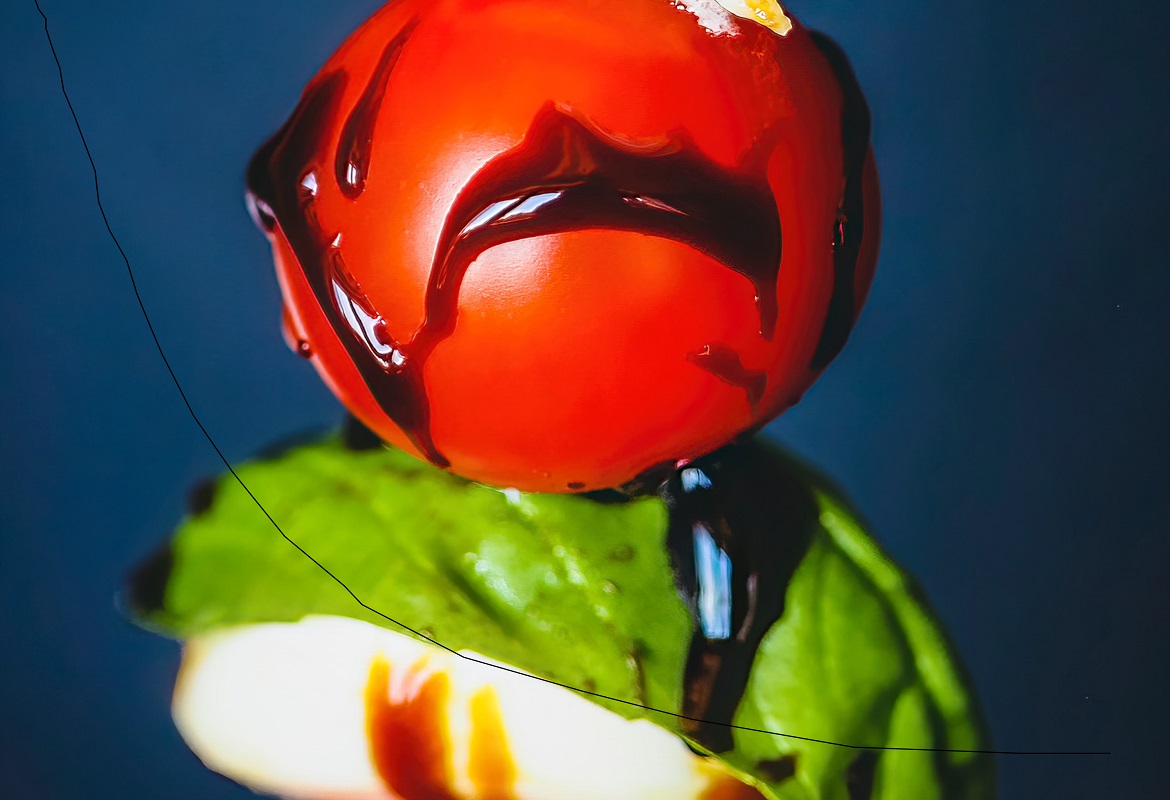
How to distinguish between the two condiments.
The first point to consider is certainly the recognition mark. The latter is printed on the bottle and the abbreviation is indicated in the product name. Therefore, even at first glance, it is not difficult to recognise the two condiments. The different organoleptic characteristics just mentioned can also help you understand which seasoning you are dealing with during a tasting session.The difference between Traditional Balsamic Vinegar of Modena PDO and Balsamic Vinegar of Modena PGI: some conclusions
.
As we have seen, there are significant distinctions between these two condiments. To learn more, we invite you to visit our Acetaia. Here you can see for yourself how they are produced and what the difference between Traditional Balsamic Vinegar of Modena PDO and Balsamic Vinegar of Modena PGI is... We look forward to seeing you!
Traditions and customs associated with Traditional Balsamic Vinegar of Modena PDO
Aceto Balsamico Tradizionale di Modena DOP is a traditional condiment produced in the Modena area, made from the must of local grapes and aged for at least 12 years. The vinegar's fragrance and aromaticity make it one of Italy's most iconic products, suitable for enhancing many preparations, giving both sweet and savoury dishes a distinctive touch.
Not everyone, however, knows the history behind this 'black nectar'. For instance, many people do not know that the adjective 'balsamic'was associated with vinegar because the original use of the product was as an antiseptic to soothe sore throats and as a digestive against stomach aches. It was also believed to combat the plague.
The family tradition
Aceto Balsamico di Modena DOP is a true tradition for all the people of Modena. In fact, just as oil is produced in other regions, vinegar is produced in Emilia Romagna and particularly in Modena. It is not uncommon, even today, to find barrels in the attics used precisely for the production of vinegar, in both country and city dwellings. This is mainly due to an ancient custom of bringing barrels of vinegar as dowry when a woman was getting married. The more barrels a family possessed, the more valuable the woman's dowry was.
In fact, upon the birth of a female child, each family started a vinegar production, to which they named the newborn, precisely for the dowry. Such barrels were placed in the attic to prevent theft by the ill-intentioned. In addition, there was a belief that a stone from the Panaro River should be placed to hold the protective cloth of the cask in place to preserve the taste of the product.

The Origins of Traditional Balsamic Vinegar of Modena PDO
.
But what are the origins of Traditional Balsamic Vinegar of Modena PDO ? The story begins at the time of the Ancient Romans: they were the first to cook grape must in order to make a drink or season preparations. At the table, during their sumptuous banquets, the Romans always placed bowls full of vinegar where diners dipped pieces of bread between plates to aid digestion. Later, between the 12th and 14th centuries, real guilds sprang up in the territories between Modena and Reggio Emilia with the task of preserving and preserving the vinegar recipe.
During the Middle Ages, in Modena, it was the Duchy of the Estensi that contributed to the spread of this particular product, even beyond regional and national borders, even attributing the adjective 'balsamic' to vinegar for the first time. It was then the French, in particular, who marketed the vinegar.
The invasion of Napoleon in 1796 allowed them to find vinegar production at the Estense Court, which they decided to sell as well as all other goods. The product was much appreciated, and became one of the protagonists of the exhibitions held in Modena and Bologna in 1863 and 1888 respectively. During the same period, the first dynasties of vinegar producers established themselves, and the production processes to obtain a proper vinegar began to be precisely codified.
Behind every Balsamic Vinegar tasting is a true sensory journey
Italy has to offer the world a plurality of products renowned for their characteristics. Take Modena vinegar, for example. More precisely, Aceto Balsamico di Modena DOP is a distinctive product, not easily substitutable with similar products, because it is made by combining passion, tradition and the mastery of producers who hand down their secrets from generation to generation. Precisely for this reason, taking a vinegar tasting could be a truly unique experience, capable of involving all the senses.
How do you taste vinegar?
.
The tasting of Balsamic Vinegar of Modena should be done preferably in the morning, as the palate, unlike at different times of the day, is ready to welcome new flavours and this allows you to fully grasp all the nuances of the vinegar. It should also be pointed out that it should never be drunk as one would with a liqueur for example, but should be swirled around in small sips on the palate as one does with wine. Before tasting it, however, it is necessary to observe it well, in order to check whether it is clear, bright, has a particularly intense colour and its density. In fact, the denser the vinegar is bodied, the greater its yield in more sophisticated recipes, e.g. on juicy meat.
A more liquid product, on the other hand, is better suited to seasoning simple dishes such as salads. However, contrary to what one might think, density is not always synonymous with ageing: things do not necessarily go hand in hand, and a dense vinegar can also be younger than a more liquid one. Finally, an olfactory analysis is carried out to identify the different scents. Typically, a vinegar that is more syrupy will have grape flavours and aromas; a younger vinegar will have a cooked smell and an older one will allow the woody and fruity scents to be perceived.

Guided tours of the vinegar cellar
For vinegar tasting, it is possible to organise a guided tour of the vinegar cellar, which follows a route that starts in the vineyard and ends with a tasting of the black gold:
- Walk through the vineyards: you start the route by observing and touching the vines from which the vinegar is made, in this way you can immerse yourself in the entire vinegar production process.
- Visit to the rooms: The vinegar cellars have several rooms for the production of Traditional Balsamic Vinegar of Modena PDO (usually in the attic of the vinegar cellars) and Balsamic Vinegar of Modena PGI. In these rooms, walking among the various wooden barrels that store the precious condiment, it is possible to learn all the secrets of production.
- Tasting: At the end of the guided tour, we usually move on to tasting the product, following the producers' advice, in order to savour it at its best. In addition, it is possible to learn the secrets of how best to combine it and make it the protagonist of a variety of dishes.
- Purchasing the product: After getting to know the product, it is possible to buy the different types of vinegars, selected by the producers and recommended according to the pairings one intends to prepare, directly from the vinegar cellar.
Traditional Balsamic Vinegar of Modena PDO: the centuries-old history of many families
Balsamic Vinegar is not a modern invention, but a very ancient tradition linked to the Modena area that has its roots in ancient times. And today it is one of the symbolic products of Italian cuisine and Made in Italy. When you talk about Traditional Balsamic Vinegar of Modena PDO, you are referring to an elite product, a true jewel of Italian production that carries the name of the Bel Paese (Beautiful Country) high.
A little history of Balsamic Vinegar
.
Already in Virgil's Georgics, the custom of cooking must was mentioned, but it was not until September 1046 that 'that famous vinegar', as described in the accompanying letter, was reliably recorded, when the Marquis of Tuscany Bonifacio sent King Henry III, the future Emperor of Germany, a bottle of the precious nectar. The tradition of giving Balsamic Vinegar as a gift became more and more popular, century after century, and aristocrats very often gave it as a gift as an absolutely precious product.
Century after century, the city of Modena became so renowned at all courts for this particular product that, by the end of the 16th century, documents can be dated in which the Ducato Estense speaks of Traditional Balsamic Vinegar of Modena as an enrichment for the tables of all aristocrats.
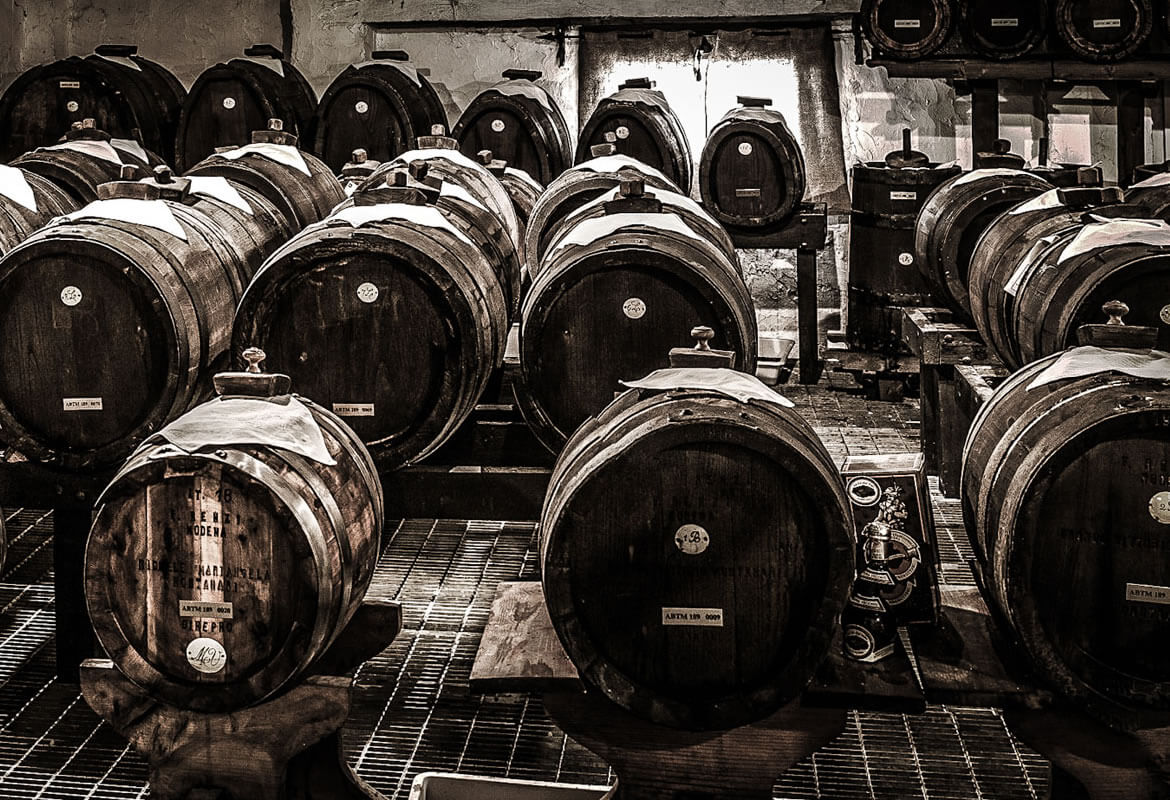
Traditional Balsamic Vinegar of Modena: today as yesterday
.
The tradition of Balsamic Vinegar in the Modena area is very old, as we have seen, and has enjoyed the favour of connoisseurs for centuries. A true legend for discerning palates. To defend this prestige, many families, generation after generation, have dedicated themselves to maintaining this historic tradition. The Modena area is in fact rich in vinegar factories with a family history that is inextricably linked to history, with a capital S, and to the development of vinegar processing.
Even today, Balsamic Vinegar of Modena is considered a true resource of the land to the extent that it is commonly referred to as the Black Gold of Modena. The pinnacle of pinnacles, as far as balsamic vinegars are concerned, is to be considered the Traditional Balsamic Vinegar of Modena PDO, the true benchmark of high quality. To produce this type of vinegar, it is necessary to scrupulously comply with all the directives of the infamous 'Unique Production Regulations' that regularise every stage of processing.
The preparation must be absolutely natural, artisanal and traditional. Not only does this type of product have to undergo a major refining or ageing process to offer its unmistakable flavour. The market for balsamic vinegars offers various certifications and the quality varies greatly according to them. For example, for Traditional Balsamic Vinegar of Modena PDO there is the certification 'extravecchio' that guarantees an ageing of at least 25 years.
One can well imagine that this type of processing leads to the development of bottles of absolute value that can be considered true masterpieces that will give taste to even the most refined and sophisticated tables. Just a few drops of the precious nectar will suffice to give meaning to any dish, to embellish any dish, to make any delicacy special, to fascinate even the most discerning palate.
Traditional Balsamic Vinegar of Modena P.D.O: a precious gift idea
Have you ever thought of giving Traditional Balsamic Vinegar of Modena P.D.O as a gift? Certainly, this is an option not to be underestimated. It is a prestigious gift always much appreciated.
Our vinegar, the fruit of a centuries-old tradition
Traditional Balsamic Vinegar is a special gift, capable of offering everyone a unique flavour. Giving it as a gift means giving a product with a very long history, whose origins date back to ancient times.
This product is the result of knowledge passed down from father to son. This knowledge combines passion and experience, creating a valuable product. Traditional Balsamic Vinegar of Modena P.D.O can provide the ideal sprint to many savoury dishes and an unexpected extra touch of goodness to many desserts.
The bouquet of aromas will instantly pervade the recipient of the gift as soon as he or she uncorks the classically designed and elegant glass bottle. The recipient will be able to immediately appreciate the aromas resulting from the ageing of the cooked must, obtained from local grapes and left to age in barrels made of precious woods. These include oak, chestnut, acacia, cherry, ash and mulberry.
Gift the taste experience of Traditional Balsamic Vinegar of Modena P.D.O
All our versions of Traditional Balsamic Vinegar of Modena P.D.O boast an elaborate taste that goes perfectly with many foods, enhancing their organoleptic characteristics. Therefore, the recipients of your precious gift will receive a versatile gift, to be used in the kitchen according to their preferences. On our website, you will find many options to choose from, which differ in terms of complexity of aroma, density and degree of ageing.
When you give Traditional Balsamic Vinegar of Modena P.D.O as a gift, you are giving a sensory experience of taste and tradition.
Ours is a certified goodness
The quality of the raw material, which comes directly from the Modenese hills, makes our vinegar a true excellence. This allows our customers to bring tradition and many nuances of authentic flavour to the table. You can trust our products because ours is a certified goodness.
The certifications that accompany our products have been obtained thanks to our careful daily work and our passion. They also derive from the dedication of our professionals in taking care of the raw materials, working the land and perfecting each step that gives life to an excellent product. When you give our Traditional Balsamic Vinegar of Modena P.D.O as a gift, you are giving an authentic goodness. you will be giving an authentic and certified goodness.
Never again without!
Our Traditional Balsamic Vinegar of Modena P.D.O is a product that evolves and absorbs flavours throughout its maturation in barrels. Once bottled, it retains all its goodness for a long time, remaining delicious and perfect to enjoy in combination with different dishes. It conquers all, even the most discerning palate. It even conquers by its appearance, as it comes in a refined packaging with a traditional and unique design.
Therefore, we can say with certainty that Traditional Balsamic Vinegar of Modena P.D.O is indeed a precious gift suitable for any occasion!
Extravecchio or Affinato Traditional Balsamic Vinegar of Modena P.D.O.? The differences
The Traditional Balsamic Vinegar of Modena D.O.P. is one of the most appreciated and imitated condiments of our territory, which since 2000 boasts the Protected Designation of Origin.
At Acetaia Marchi we produce it exclusively with cooked must of grapes from the provinces of Modena and Reggio Emilia. In order to obtain a quality product we have to reproduce special climatic conditions in unique attics and follow a detailed step-by-step procedure.
We produce both types of traditional balsamic: Affinato and Extravecchio. These products differ from each other in particular with regard to the ageing process. Let us go into detail.
Types of Traditional Balsamic Vinegar of Modena P.D.O.
As mentioned above, the two main categories of Traditional Balsamic Vinegar of Modena are distinguished on the basis of their ageing process. The ageing of the product is determined by the time it spends inside the barrels. As the Balsamic vinegar ages, it is decanted into smaller barrels. The set of barrels is called a "battery" and must consist of at least 4 pieces.
Refining is the process by which Traditional Balsamic Vinegar of Modena PDO becomes increasingly concentrated and aromatic as it ages, thanks to the action of vinegar bacteria. It takes about two years for the fermentation and acetification process of the original product to start. It takes another ten years of ageing in the various barrels of the battery to obtain a product that can be defined as "Affinato".
An "extravecchio" is a traditional balsamic which has been matured in wooden barrels for at a minimum of 25 years. This type of product is taken annually from the smallest barrel. Its production and bottling must follow the procedures set out in the product specification. The specification obliges producers to bottle Traditional Balsamic Vinegar of Modena PDO in 100 ml bottles, sealed on the cap with a numbered label.
The differences between Affinato and Extravecchio
In short, the main difference between the two products is the ageing time, which is longer for the Extravecchio. This difference translates into a further distinction: one concerning flavour and texture. The longer the ageing period, the more dense the consistency and the more aromatic and distinct flavour of extra-old Traditional Balsamic Vinegar of Modena PDO.
Aromaticity is defined by a tasting committee made up of 5 tasters who must be certified by the Chamber of Commerce of Modena. They award a score for the visual appearance, aroma and taste of the product. Only after approval by the commission will it be possible to bottle and sell the vinegar as Traditional Balsamic.
An aged vinegar must reach a minimum score of 229 points, while an extra-aged one must not have a sensory score lower than 255 points.
Would you like to taste an excellent Traditional Balsamic Vinegar of Modena D.O.P.?
If you answered yes, don't hesitate to try our products. At Acetaia Marchi we offer both the Affinato and the Extravecchio, both pure and fine, with an intense, deep and bright black colour and a pleasant and harmonious acidity. We can offer a variety of solutions and each time you will have a unique, high-quality Traditional Balsamic Vinegar of Modena D.O.P. at your disposal.
The difference between Traditional Balsamic Vinegar of Modena PDO and Balsamic Vinegar of Modena PGI.
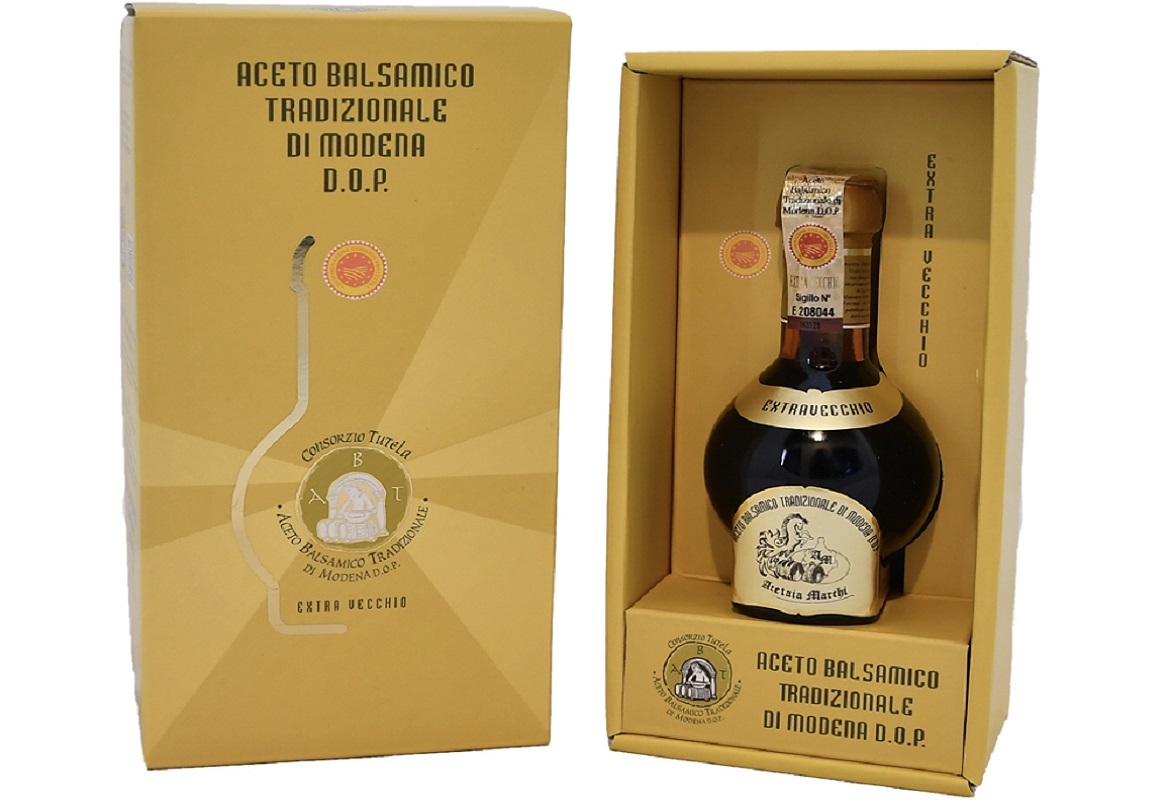 If we talk about balsamic vinegar, it is only natural that we are talking about a city: Modena. Modena is the capital of the Este family, where we find the word 'balsamic' for the first time in 1747. The wording was used to distinguish that particular category of product from others already present in the cellars of the Palazzo Ducale in Modena.
If we talk about balsamic vinegar, it is only natural that we are talking about a city: Modena. Modena is the capital of the Este family, where we find the word 'balsamic' for the first time in 1747. The wording was used to distinguish that particular category of product from others already present in the cellars of the Palazzo Ducale in Modena.
By the end of the 19th century, balsamic vinegar was already a renowned and esteemed product throughout Italy, not only for its quality and taste. Today, it is the star of numerous trade fairs all over the world and collects important awards year after year.
Traditional Balsamic Vinegar of Modena P.D.O. and Balsamic Vinegar of Modena P.G.I.
D.O.P. Traditional Balsamic Vinegar of Modena and P.G.I. Balsamic Vinegar are products backed by certifications that guarantee their quality and authenticity. However, they must be known by their distinct characteristics. In fact, there is more than one substantial difference between these two products.
The first is the result of a process that involves numerous phases and processes. It starts with cooking the grape must, at a minimum temperature of eighty degrees, and then moves on to fermentation. The Traditional Balsamic Vinegar of Modena P.D.O. is left to age for a minimum of 12 years, which becomes 25 years if the label "Extra Old" is required. During this period, the vinegar is decanted into fine wooden barrels that give rise to unfailing and unmistakable organoleptic characteristics.
If, on the other hand, we speak of Balsamic Vinegar of Modena I.G.P. we are referring to a typical product of our territory prepared with a mixture of cooked grape must and wine vinegar. The ageing and refinement process is considerably reduced compared to that of the traditional D.O.P. In fact, the minimum period of time required by the relative regulations is 60 days and the maximum is 2 years.
 What do these differences mean?
What do these differences mean?
Both products comply with the strict specifications that govern their production and end result. For example, the grapes used must be harvested exclusively in the hills of Modena and its province, and also in the province of Reggio Emilia for Balsamic Vinegar of Modena I.G.P. The vines used are Lambrusco, Ancellotta, Trebbiano, Sauvignon, Sgavetta, Berzemino and other DOC vines from the province of Modena. The colour is also strictly controlled to ensure that it is the right shade of intense brown.
Despite these details in common, it is clear that the differences in terms of ingredients and ageing result in two products with different tastes and textures. Indeed, Traditional Balsamic Vinegar of Modena P.D.O. has a more intense and pronounced flavour and consistency than Traditional Balsamic Vinegar of Modena P.D.O. and the aroma of Traditional Balsamic Vinegar of Modena P.D.O. is also more pronounced than that of Traditional Balsamic Vinegar of Modena P.D.O..
The level and perception of acidity is also very different in the two products. This smell is more pronounced and present in Balsamic Vinegar of Modena PGI, where the minimum percentage must always be greater than 6%, while it is lower in Traditional Vinegar of Modena PDO, where it blends and attenuates better over a long period of ageing.
We can therefore say with certainty that there are differences between the two products. With this in mind, we invite you to taste our balsamic vinegar. Do you prefer the traditional P.D.O. or the P.G.I. balsamic? Let us know!
Our production of Traditional Balsamic Vinegar of Modena P.D.O.
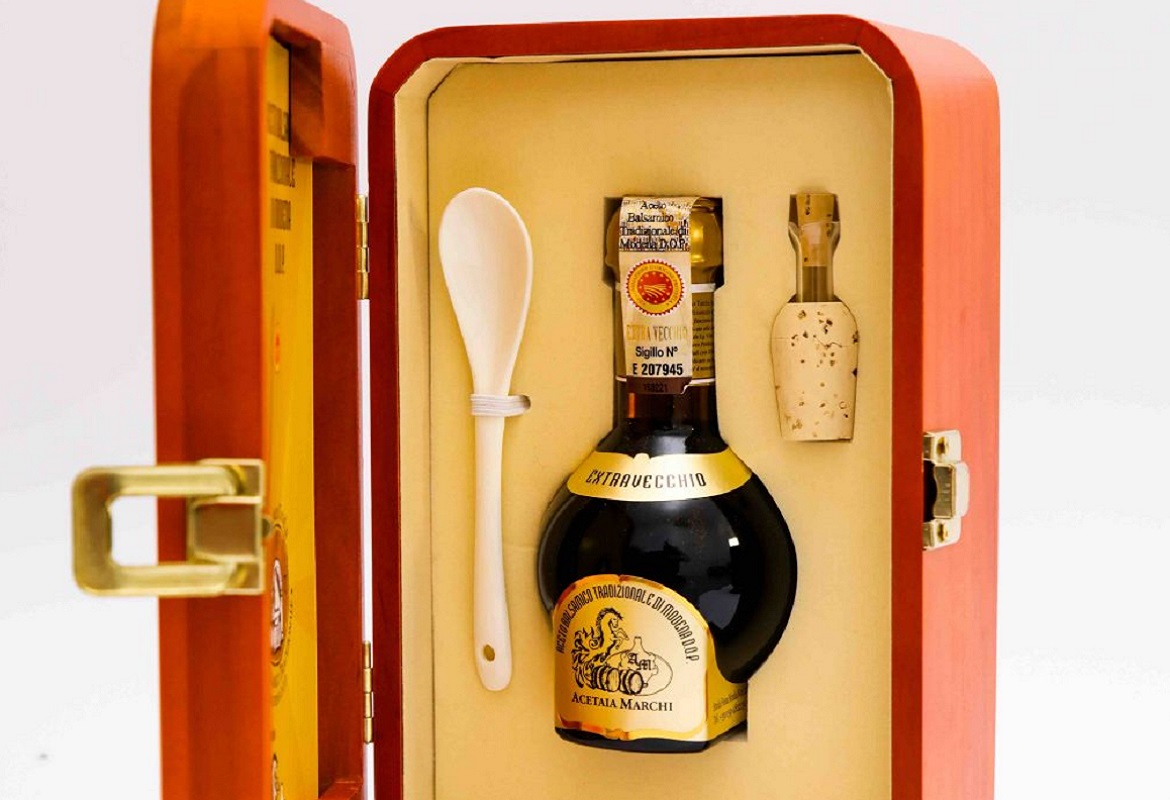
Acetaia Marchi has been producing Traditional Balsamic Vinegar of Modena D.O.P for over a century. Our products are highly appreciated by even the greatest connoisseurs in the sector. Our production involves numerous stages, the use of high quality raw materials and casks made of precious wood. Let's get to know this product on a general level and then talk about our production in more detail.
A traditional and also D.O.P. product!
Traditional Balsamic Vinegar of Modena has been protected by the D.O.P. mark for more than 20 years, to be precise since 17 April 2000. This is the date on which the European regulation for the protection of this product was approved. D.O.P. Traditional Balsamic Vinegar of Modena is a product resulting from the cooking of grape must and subsequent ageing for at least 12 years or at least 25 years.
The D.O.P. mark is a guarantee
In order to obtain the D.O.P. mark, production must comply with a strict specification, which protects this delicacy from the imitations that have often appeared on the market. The cornerstones of this specification are the use of must from only selected grapes from the vines of the province of Modena. These include Lambrusco, Trebbiano, Sauvignon, Ancellotta, Sgavetta, Berzemino and Occhio di Gatta.
Once the musts have been selected, they are cooked over direct heat at a temperature of 84° for 12-14 hours in open-vessel containers. The crucial phase is refinement/ageing, which must take place in wooden barrels made of oak, chestnut, mulberry, acacia, rubinia, juniper, cherry and ash (chosen for their aromaticity), stored in attics that are preferably not insulated. Temperature variations are in fact fundamental to the success of the refinement/ageing process of Traditional Balsamic Vinegar of Modena P.D.O. During all these years, Traditional Balsamic Vinegar of Modena P.D.O. must rest in the vinegar cellar.
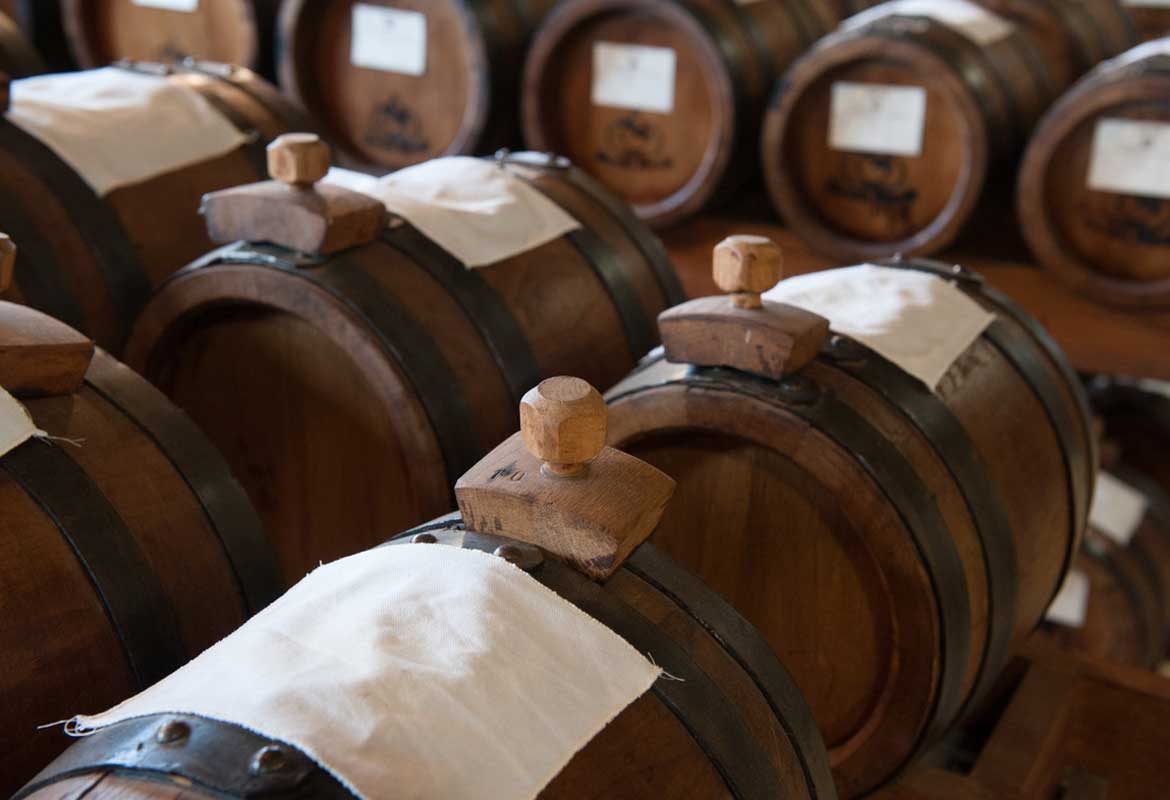
Our production of Traditional Balsamic Vinegar of Modena P.D.O.
Inside the Marchi Vinegar Works, the barrels designed for maturing and resting Traditional Balsamic Vinegar of Modena P.D.O. are divided into batteries, ordered from the largest to the smallest. The Oro Nero is progressively decanted from the largest to the smallest. Each battery differs in capacity, but also in the type of wood (oak, chestnut, cherry, juniper, etc.) from which it is made. The progressive decanting allows the Traditional Balsamic Vinegar of Modena P.D.O. to concentrate, reaching the organoleptic standards of colour, density, fragrance and flavour laid down in the specifications.
Once the years of refinement and ageing have passed, the products are selected by a special commission of tasters, thus becoming our Traditional Balsamic Vinegar of Modena D.O.P. To our customers we offer a high quality product, prepared with only grapes from our territory. We follow the specifications step by step and pay attention to every single phase of production.
Discovering the delicious and intoxicating Oro Nero
In our family, we have been passing on the passion from generation to generation for years. We also pass on the tradition and the love for this special product typical of our region. Our production is aimed at private individuals and gourmets, but also at the companies and professionals of various sectors. With this in mind, we invite you to put our Traditional Balsamic Vinegar of Modena D.O.Pto the test. You can bring a refined tradition and a unique taste to the table.




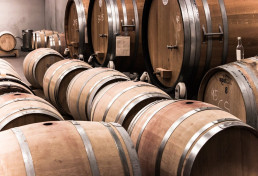
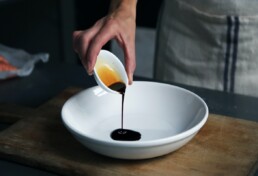
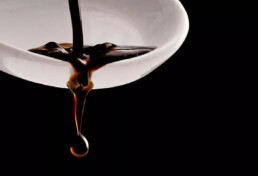
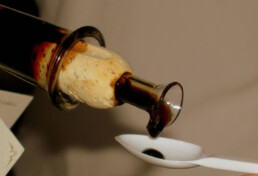




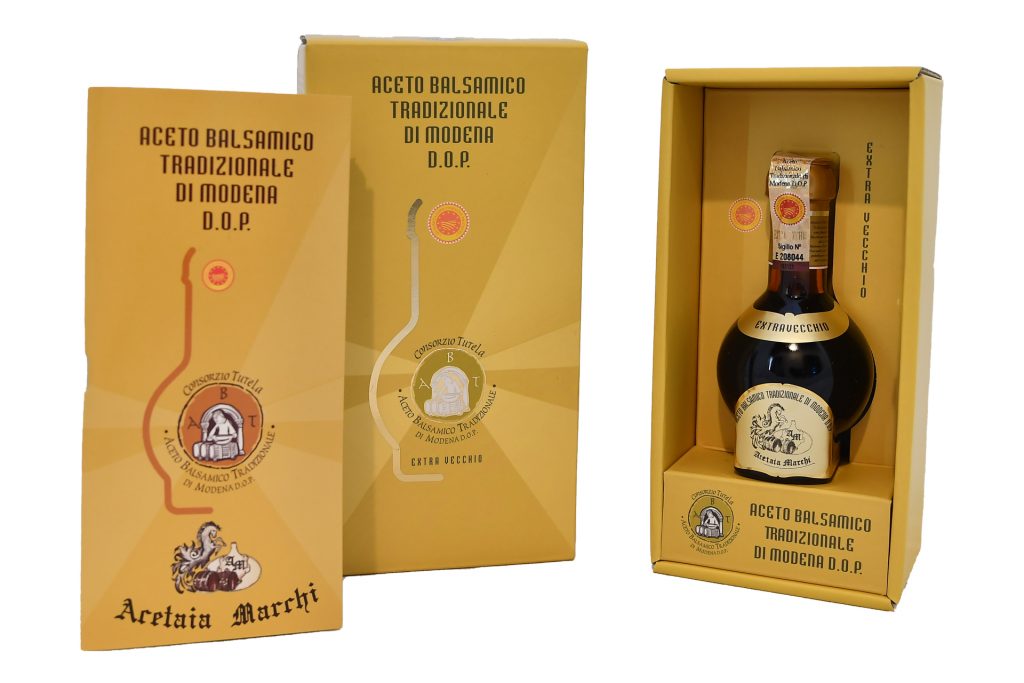
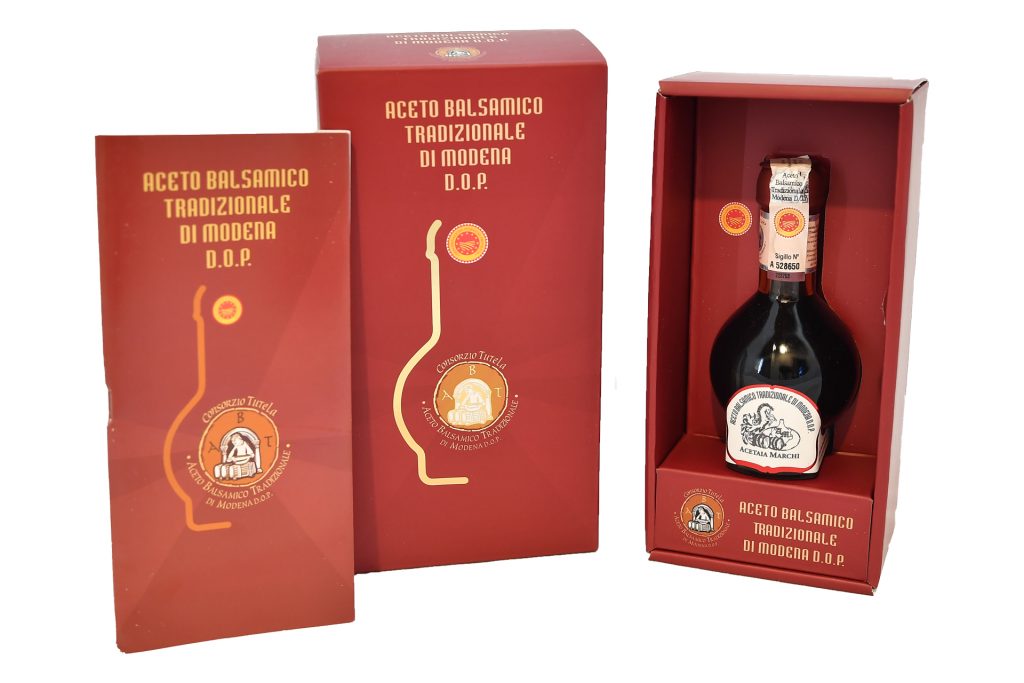

 What do these differences mean?
What do these differences mean?